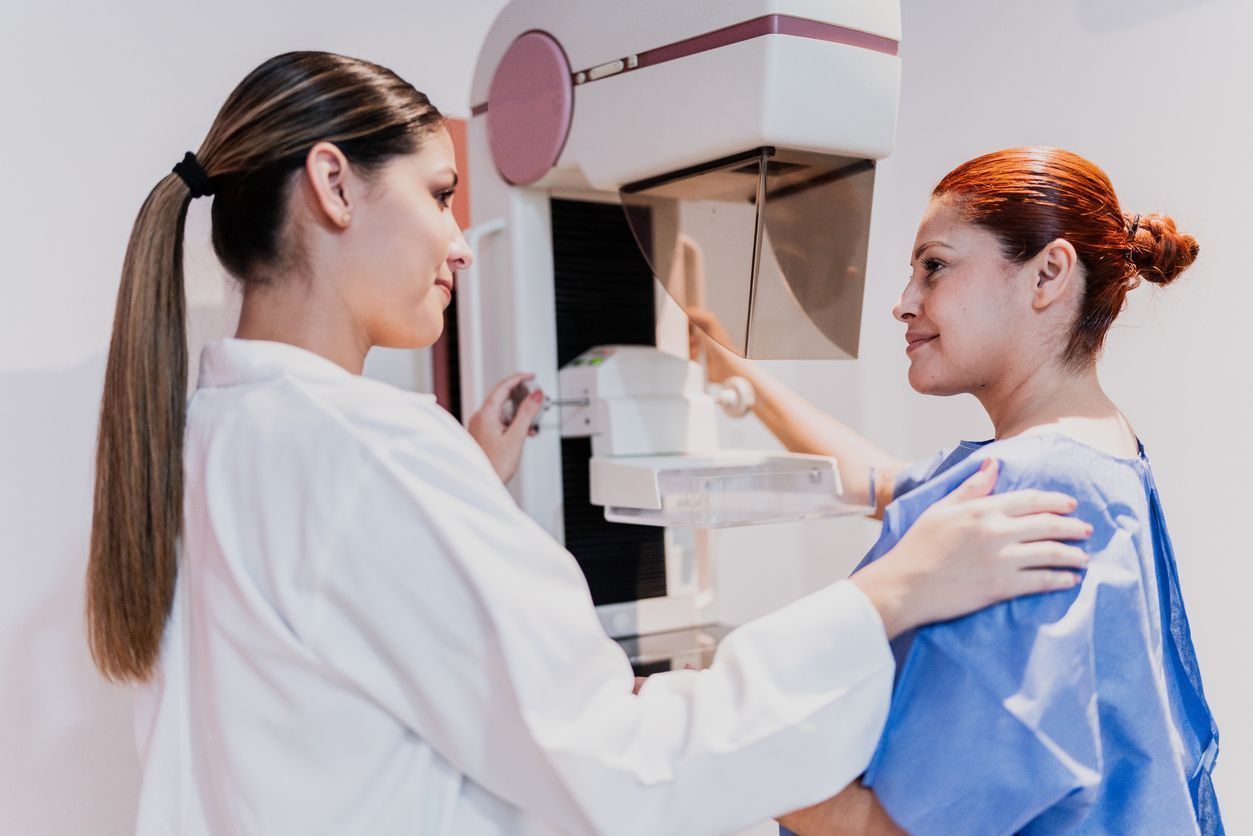Hormonal Imbalance: A Guide for Women
People have medical issues throughout their lives. Women have their own unique medical problems. Here, we talk about one of the causes of female bodily concerns. There are times when your body might produce too little or too much of one or more hormones. When this happens, it's called hormonal imbalance. Many women have this medical issue.
Did you know that the human body produces over 50 hormones? Each one plays a vital role in maintaining your overall health and well-being. Understanding the importance of hormonal balance is key to this topic.
Key Functions of Hormones
The hormones your glands produce tell your organs, muscles, and other tissues what to do and when to do it.
Examples of what hormones control are:
- Metabolism (converts food to energy by a chemical reaction with your body's cells).
- Growth and development.
- Mood regulation.
- Homeostasis (internal balance).
- Sleep-wake cycles.
- Sexual function.
- Reproduction.
When your hormones get out of balance, it can cause many different kinds of hormonal-related conditions. These conditions can result in significant changes in your body. Even slight changes in your hormones can result in significant changes in your body.
The hormones your glands produce tell your organs, muscles, and other tissues what to do and when to do it.
Examples of what hormones control are:
- Metabolism (converts food to energy by a chemical reaction with your body's cells).
- Growth and development.
- Mood regulation.
- Homeostasis (internal balance).
- Sleep-wake cycles.
- Sexual function.
- Reproduction.
When your hormones get out of balance, it can cause many different kinds of hormonal-related conditions. These conditions can result in significant changes in your body. Even slight changes in your hormones can result in significant changes in your body.
Common Symptoms of Hormonal Imbalance
Women experiencing hormonal imbalances may notice a range of symptoms, including:
- Constipation.
- Diarrhea or more frequent bowel movements.
- Numbness and tingling in your hands.
- Higher than normal blood cholesterol.
- Depression or anxiety.
- Unable to tolerate cold or warm temperatures.
- Course dry skin and hair.
- Irregular body fat distribution.
- Darkened skin on the back, sides of your neck, or armpit.
- Skin tags.
- Extreme thirst and urination.
- Sex hormone imbalance.
Some symptoms are minor annoyances. Also, some are severe and require treatment. Some others are everywhere in between.
Hormonal imbalance ranges from temporary to chronic conditions.
Women experiencing hormonal imbalances may notice a range of symptoms, including:
- Constipation.
- Diarrhea or more frequent bowel movements.
- Numbness and tingling in your hands.
- Higher than normal blood cholesterol.
- Depression or anxiety.
- Unable to tolerate cold or warm temperatures.
- Course dry skin and hair.
- Irregular body fat distribution.
- Darkened skin on the back, sides of your neck, or armpit.
- Skin tags.
- Extreme thirst and urination.
- Sex hormone imbalance.
Some symptoms are minor annoyances. Also, some are severe and require treatment. Some others are everywhere in between.
Hormonal imbalance ranges from temporary to chronic conditions.
What Other Conditions Can Hormonal Imbalance Cause?
According to doctors, hormonal imbalance can cause dozens of medical issues.
Some of the more common issues are:
- Irregular menstruation (period).
- Infertility.
- Acne.
- Adult acne.
- Diabetes (requires treatment).
- Thyroid disease (requires treatment).
- Obesity (several hormones signal your body that you need food. Some tell your body what to do with the energy it gets from the food. The latter can cause your body to store that energy in the form of fat.).
According to doctors, hormonal imbalance can cause dozens of medical issues.
Some of the more common issues are:
- Irregular menstruation (period).
- Infertility.
- Acne.
- Adult acne.
- Diabetes (requires treatment).
- Thyroid disease (requires treatment).
- Obesity (several hormones signal your body that you need food. Some tell your body what to do with the energy it gets from the food. The latter can cause your body to store that energy in the form of fat.).
Menopause and Your Hormonal Changes
Menopause is a common consequence of hormonal changes.
When a woman is around 50, her ovaries begin to decrease estrogen and progesterone production. Then, the pituitary gland produces more follicle stimulation hormones. It does this in an attempt to compensate.
Menopause is a normal aging process for women. Its symptoms range from irritating to dangerous and require treatment.
Some of the symptoms include:
- Hot flashes.
- Irritability and depression.
- Decreased libido.
- Vaginal dryness and atrophy causing painful intercourse.
- Insomnia.
- Osteoporosis which makes bones more likely to fracture.
-
Night sweats.
- Fatigue.
- Cognitive changes (brain fog).
- Mood swings.
Your OB/GYN or primary care provider should test your hormone levels to establish a baseline. Then, run periodic retest to check for changes. Your healthcare provider can then determine an individually specific treatment plan for you.
A drop in estrogen may cause hot flashes, fatigue, and mood changes. A change in progesterone levels can affect your sleep.
Menopause is a common consequence of hormonal changes. When a woman is around 50, her ovaries begin to decrease estrogen and progesterone production. Then, the pituitary gland produces more follicle stimulation hormones. It does this in an attempt to compensate.
Menopause is a normal aging process for women. Its symptoms range from irritating to dangerous and require treatment.
Some of the symptoms include:
- Hot flashes.
- Irritability and depression.
- Decreased libido.
- Vaginal dryness and atrophy causing painful intercourse.
- Insomnia.
- Osteoporosis which makes bones more likely to fracture.
- Night sweats.
- Fatigue.
- Cognitive changes (brain fog).
- Mood swings.
Your OB/GYN or primary care provider should test your hormone levels to establish a baseline. Then, run periodic retest to check for changes. Your healthcare provider can then determine an individually specific treatment plan for you.
A drop in estrogen may cause hot flashes, fatigue, and mood changes. A change in progesterone levels can affect your sleep.
Summary
The human body produces over 50 different hormones. Sometimes, they get a little out of wack. When that happens, it's called hormonal imbalance. It can happen to both men and women. However, women have their own special hormonal imbalance issues. If you're experiencing symptoms of hormonal imbalance, it's critical to:
- Track your symptoms.
- Consult with your healthcare provider.
- Consider hormone-level testing.
- Explore treatment options. This may include lifestyle changes, hormone replacement therapy, or other medical interventions.
Remember, each woman's experience with hormonal imbalance is unique. Understand your body and work closely with your healthcare provider. Then, you can develop an effective strategy to manage symptoms and improve your overall health and well-being.
See an endocrinologist if you prefer to talk to a specialist about your hormones or glands.
Contact us
for more information about hormone imbalance.
This blog pos
t
is for informational purposes only. It is not intended to be a medical diagnosis or advice. As with any health symptoms or concerns, talk to your healthcare provider.
The human body produces over 50 different hormones. Sometimes, they get a little out of wack. When that happens, it's called hormonal imbalance. It can happen to both men and women. However, women have their own special hormonal imbalance issues. If you're experiencing symptoms of hormonal imbalance, it's critical to:
- Track your symptoms.
- Consult with your healthcare provider.
- Consider hormone-level testing.
- Explore treatment options. This may include lifestyle changes, hormone replacement therapy, or other medical interventions.
Remember, each woman's experience with hormonal imbalance is unique. Understand your body and work closely with your healthcare provider. Then, you can develop an effective strategy to manage symptoms and improve your overall health and well-being.
See an endocrinologist if you prefer to talk to a specialist about your hormones or glands.
Contact us for more information about hormone imbalance.
This blog pos t is for informational purposes only. It is not intended to be a medical diagnosis or advice. As with any health symptoms or concerns, talk to your healthcare provider.













